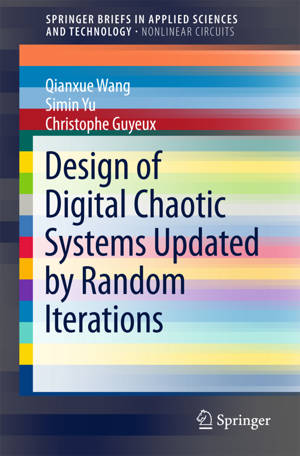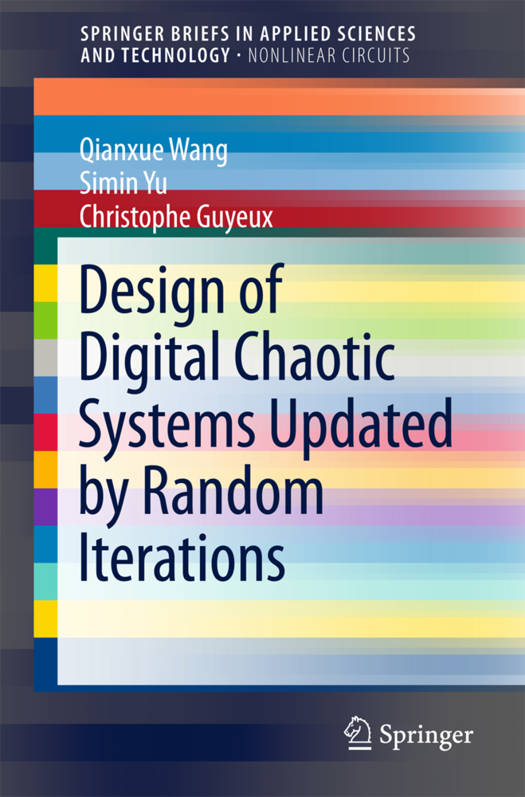
- Afhalen na 1 uur in een winkel met voorraad
- Gratis thuislevering in België vanaf € 30
- Ruim aanbod met 7 miljoen producten
- Afhalen na 1 uur in een winkel met voorraad
- Gratis thuislevering in België vanaf € 30
- Ruim aanbod met 7 miljoen producten
Design of Digital Chaotic Systems Updated by Random Iterations
Qianxue Wang, Simin Yu, Christophe GuyeuxOmschrijving
This brief studies the general problem of constructing digital chaotic systems in devices with finite precision from low-dimensional to high-dimensional settings, and establishes a general framework for composing them. The contributors demonstrate that the associated state networks of digital chaotic systems are strongly connected. They then further prove that digital chaotic systems satisfy Devaney's definition of chaos on the domain of finite precision. The book presents Lyapunov exponents, as well as implementations to show the potential application of digital chaotic systems in the real world; the authors also discuss the basic advantages and practical benefits of this approach.
The authors explore the solutions to dynamic degradation (including short cycle length, decayed distribution and low linear complexity) by proposing novel modelling methods and hardware designs for two different one-dimensional chaotic systems, which satisfy Devaney's definition of chaos. They then extend it to a higher-dimensional digital-domain chaotic system, which has been used in image-encryption technology. This ensures readers do not encounter large differences between actual and theoretical chaotic orbits through small errors.
Digital Chaotic Systems serves as an up-to-date reference on an important research topic for researchers and students in control science and engineering, computing, mathematics and other related fields of study.
Specificaties
Betrokkenen
- Auteur(s):
- Uitgeverij:
Inhoud
- Aantal bladzijden:
- 110
- Taal:
- Engels
- Reeks:
Eigenschappen
- Productcode (EAN):
- 9783319735481
- Verschijningsdatum:
- 8/03/2018
- Uitvoering:
- Paperback
- Afmetingen:
- 157 mm x 236 mm
- Gewicht:
- 228 g

Alleen bij Standaard Boekhandel
Beoordelingen
We publiceren alleen reviews die voldoen aan de voorwaarden voor reviews. Bekijk onze voorwaarden voor reviews.









